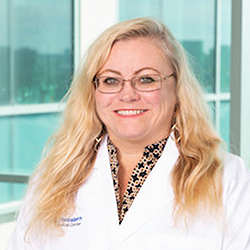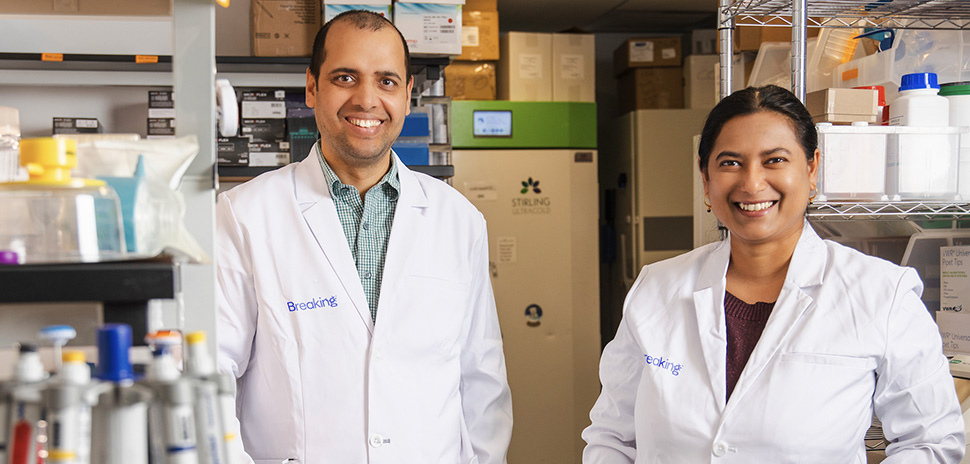![]() Every week, we do a little research of our own. We’re looking for scientists, professors, engineers, entrepreneurs—anybody, really—engaging in research and development across North Texas.
Every week, we do a little research of our own. We’re looking for scientists, professors, engineers, entrepreneurs—anybody, really—engaging in research and development across North Texas.
There’s plenty of good work being done. If you want to put R&D under your microscope, sign up for our e-newsletter.
A UNTHSC grad was named to CDC’s elite fellowship program
A graduate of the University of North Texas Health Science Center in Fort Worth has been tapped as a post-graduate fellow for the Centers for Disease Control’s Epidemic Intelligence Service (EIS), the so-called disease detectives who travel the globe investigating outbreaks that threaten public health.

Amy Board
Amy Board, DrPH, MSW, MPH, a graduate of its School of Public Health, is one of 66 people chosen for the highly competitive EIS post-graduate fellowship program.
Officers from the EIS have globe-trotted for 65 years serving as the epidemiological boots on the ground tackling public health threats such as polio, smallpox, Ebola, the Zika virus, HIV/AIDS, E. coli, and more. Their goal is to save lives and protect the public.
Hundreds of scientists, healthcare, and public health professionals apply every year for the fellowships, but only a handful are selected. It’s a two-year, hands-on opportunity to work under the mentorship of experienced epidemiologists at the CDC and partnering agencies.
“The EIS program offers a unique combination of on-the-job learning and service. I had the double excitement of first being accepted and then finding out that I would be spending the next two years further developing my epidemiology skills through a subject area I’m particularly interested in learning more about,” she said. “I couldn’t have been more thrilled for this opportunity.”
A UTSW professor’s research looks at E. coli
A strain of E. Coli called EHEC is implicated in several food borne outbreaks every year, causing gastroestinal problems that can be debilitating and even deadly.

Vanessa Sperandio
Researchers at UT Southwestern Medical Center in Dallas have found that mice fed a plant-rich diet are less susceptible to gastrointestinal infection from the pathogen. A recent outbreak of the E. coli pathogen was tied to romaine lettuce.
“There has been a lot of hearsay about whether a plant-based diet is better for intestinal health than a typical Western diet, which is higher in oils and protein but relatively low in fruits and vegetables,” Vanessa Sperandio, professor of microbiology and biochemistry at UT Southwestern, said in a statement. “So we decided to test it.”
Her study on the mouse model of EHEC was published in Nature Microbiology.
“Plant-rich diets are high in pectin, a gel-like substance found in many fruits and vegetables. Pectin is digested by the gut microbiota into galacturonic acid, which we find can inhibit the virulence of EHEC,” she said. “This is relevant to public health because EHEC outbreaks lead to hemorrhagic colitis, which is debilitating and sometimes causes death, particularly in the very young and the elderly.”
UTA robot inspecting Waxahachie sewer pipes in research project
A robot is busy at work inspecting several miles of sewer pipelines in Waxahachie through a collaboration between the city and the University of Texas at Arlington. The intent is to get better estimates of the remaining service life of the pipes.

Abolmaali Ali
UTA announced that Ali Abolmaali, professor and chair of UTA’s Civil Engineering Department, will lead the pilot project. It goes beyond his previous work to evaluate the remaining service life for pipelines in Waxahachie.
The project is split in two halves: inspection and data evaluation. Core samples taken from the pipes will be analyzed by a scanning electron microscope to relate material chemistry to pipe strength.
The project also will use finite element modeling—a computerized way of predicting how something reacts to real-world forces such as vibration, heat, fluid flow, and other physical effects—and employ artificial intelligence.
Abolmaali evaluated the conditions of some of the City of Arlington’s pipes in 2015, and he’s also done pipeline performance evaluations for the cities of Ennis and Frisco.
![]()
Get on the list.
Dallas Innovates, every day.
Sign up to keep your eye on what’s new and next in Dallas-Fort Worth, every day.





































































